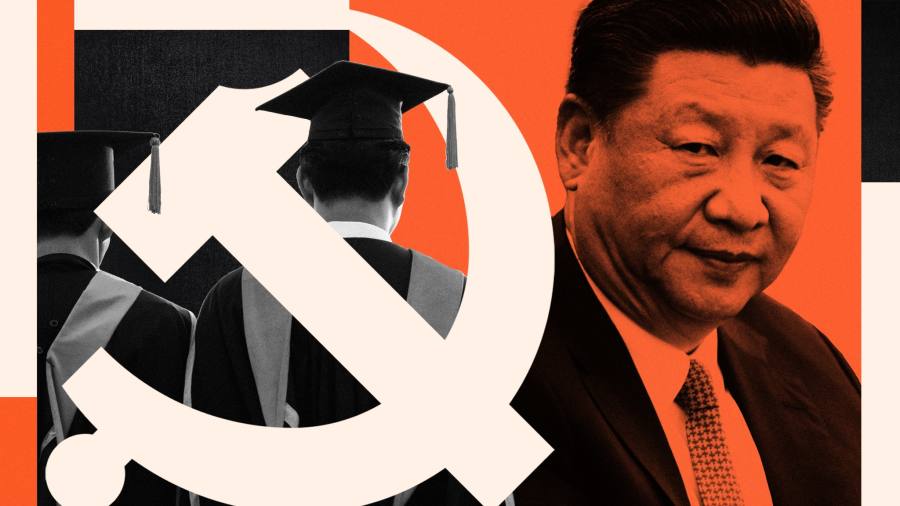
Faced with a list of concerns over the Chinese Communist party’s growing influence abroad, the UK government is targeting the easiest — and most inconsequential.
It has promised to ban Confucius Institutes, the 30 Chinese government-funded centres spread across the UK that are attached to universities and teach the Chinese language. An amendment added to the higher education bill will give the secretary of state the power to terminate university collaborations funded with foreign money in England.
For disclosure, I, too, have taken Chinese government money. After passing the language test at the LSE’s Confucius Institute, I won a Chinese government scholarship to study at Peking University for a year. That exposure to Chinese economics has proved indispensable in my career as a China correspondent. We need more people who can talk to, write about and understand China.
As often is the case with Chinese government initiatives, underneath the surface of the institutes lies the political economy of mediocrity rather than a masterplan. There are many problems with the institutes: teaching quality is highly varied because of the corruption that is endemic to Chinese public life. Academics close to them say that contracts are often awarded to friends and family members as rewards: a highly salaried overseas package and the chance to live in a country that still has cultural cachet for many in China.
But we should treasure that Chinese people see a UK posting as prestigious. It is much more difficult to encourage Britons to go in the other direction. China has long displayed a much greater curiosity about the western world than we have shown in it. A taxi driver in Xinjiang once regaled me with his views on Boris Johnson. Could our former prime minister point to Xinjiang on a map?
The UK’s lack of China competence is itself a threat to the nation’s security. The concentration of authority in a small number of China experts means a high risk of group capture, be it from political fads or CCP influence. The low level of government and business understanding of how China really works increases the risk of CCP agents being able to sell deals with strings attached, and of Westminster delivering misguided trade and foreign policy.
Every year, about 300 undergraduates leave British universities with Chinese degrees, a number that has slightly declined over the past decade, despite China’s rising importance in the world. Creating career pathways that value language expertise would help: as The Spectator reports, there were only 41 Chinese speakers in the 17,000-strong Foreign Office last year.
Solving the problems the CCP presents cannot be done by avoiding anything linked to the CCP. Puritanical disengagement led to defunding to the point of closure of the Great Britain China Centre, the UK’s foremost China outfit, because it organises cross-party exchanges with CCP officials. If we are to understand what Beijing thinks, we have to speak to it.
The CCP’s main threats to academic freedom are not identifiable employees of the state. They include the student volunteers who monitor the political views of their Chinese and Hong Kong peers, acting out of both careerism and conviction.
Teachers at Confucius Institutes will either avoid, or echo the CCP line on sensitive topics. But this is not a breach of academic freedom. It is within their academic freedom to hold any opinion they like on the merits of China’s one-party system.
We should trust students to think for themselves if they are exposed to such views. It is inevitable that students of Chinese will encounter proponents of the CCP. After all, if they really want to understand China, they will at some point have to live there, among the 96 per cent of people in the country who think the CCP is doing a good job.
Rather than passing a decree from above, the government can work with universities to apply pressure to make Confucius Institutes work better. The institutes should be forced to disclose contracts and financial statements. Universities should have joint management to maintain teaching quality. And if they cannot, then the institutes should be moved outside of campuses to continue their work with schools, mirroring other government-funded centres such as the Institut Français.
Most importantly, we need to create better Chinese language provision at all stages of education. Working with Taiwanese teaching institutions is a great idea, but will not be enough on its own. Rather than ban the institutes, the UK should compete with a better offer.